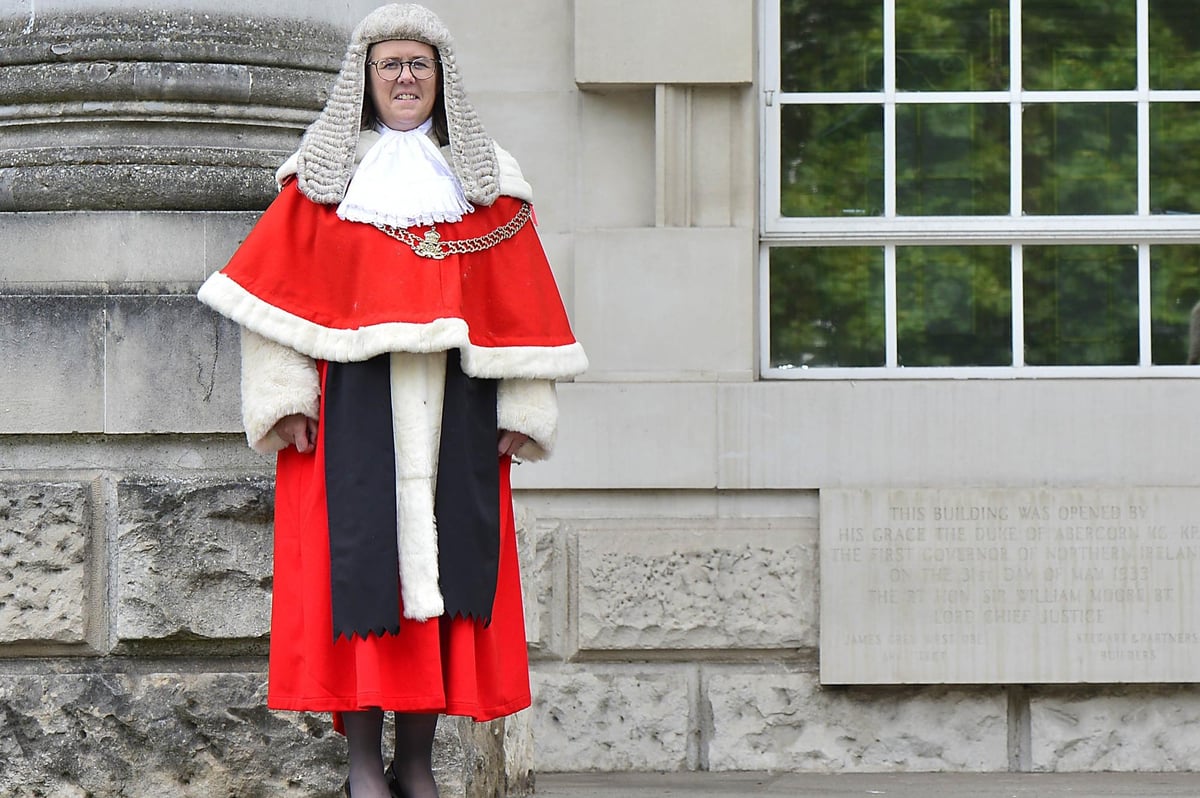Historic explosive convictions for planned attack on RUC officers were not unsafe finds lady chief justice – but two other judges rule that they were, forming a majority to allow the appeal
By Court Reporter
Copyright newsletter

Dame Siobhan Keegan was outnumbered on the Court of Appeal in Belfast when the two other judges found that the convictions were unsafe – so forming a majority to allow the appeal. Lawyers for the three men – Declan John Murphy, Conor Gilmore and Declan John Moen – said that the men were “fully vindicated” by the quashing of their convictions. Senior judges identified “reprehensible” and deliberate police misconduct which was never revealed at the original trial of Declan John Murphy, Conor Gilmore and Declan John Moen. The decision, by a two to one majority, was based on an examination of a confidential annex of material. In 1991 all three men were found guilty at a non-jury trial of possessing explosive substances with intent. The charges related to a bomb planted at Limavady United FC’s ground ahead of a home match against the Royal Ulster Constabulary football team in December 1989. The deadly device, made up of Semtex and ball bearings to act as shrapnel, had been placed in the away dugout. It was to be detonated by radio remote control when the police officers in the RUC team were at that part of the stadium, previous courts heard. The terrorist plot was thwarted because fixture rearrangements meant the match did not go ahead on that date. Mr Murphy, Mr Gilmore and Mr Moen had already mounted a previous failed legal bid to clear their names. But in 2022 a body which examines potential miscarriages of justice referred their cases back to the Court of Appeal. The Criminal Cases Review Commission (CCRC) cited sensitive reasons for the decision. It centred on the emergence of potential fresh evidence which was not disclosed at the original trial. Most of the hearing took place in private due to the sensitivity of the material. Special advocates appointed to protect the interests of the three appellants argued that if disclosure had been made at trial it would have revealed serious misconduct by the police. Despite conceding the misconduct was indefensible, prosecutors insisted the convictions remained safe because it had no impact on the fairness of the criminal proceedings. But two members of the appeal panel, Lord Justice Treacy and Mr Justice Colton, ruled: “The abuse of process issues that arise are of such a level of deliberate police misconduct to offend the court’s sense of justice and propriety and undermine public confidence in the justice system.” In a brief, three-page judgment, they held that the three men’s appeals must be allowed. Dissenting from their assessment, Lady Chief Justice Dame Siobhan Keegan found on balance that the trial was fair and that the convictions remained safe. “While the conduct of the police is reprehensible, this is outweighed by the competing public interest in the prosecution of serious terrorist offences,” she stated. However, Dame Siobhan confirmed: “Therefore, by a majority, the decision of this court is that the convictions are not safe on the abuse of process ground referred by the CCRC and argued by the Special Advocates.” Speaking outside court, the three men’s solicitor declared them fully vindicated by the verdict. Gavin Booth of Phoenix Law said: “We welcome the decision to quash the convictions of Declan Murphy, Declan Moen and Conor Gilmore. “Our clients’ case always was that they were set up by a state agent. “That was endorsed today by the Court of Appeal openly stating that the conduct was reprehensible.” Mr Booth added: “Today our clients are finally vindicated after fighting this case since 1989.” A Police Service of Northern Ireland spokesperson said: “We are aware of the appeal court judgment and will take time to study the full judgment and its content when published.”



